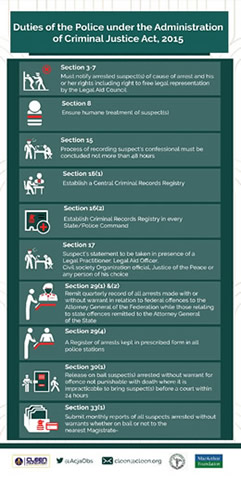Consistent with the mission of CLEEN Foundation hinged on the promotion of public safety and security in Nigeria, it observed the 14 July, 2018 Governorship election in Ekiti State, with a specific focus on the security dimensions of the election
The mission was in furtherance of a series of interventions earlier made by the organization to enhance electoral security in the state. Such interventions included the deployment of INEC’s Electoral Institute Election Violence Mitigation and Advocacy Tool (EVMAT), the analysis of our research findings from the EVMAT and release of a comprehensive report on Election Security Threat Assessment (ESTA) focusing on different aspects of security issues in the election; and the widespread dissemination of the STA report among stakeholders, most especially INEC, security agencies, civil society and the media. The CLEEN Foundation deployed 43 observers across the 16 LGAs of the state. These include 32 stationary observers, 4 roving observers, 4 call centre managers and 3 field supervisors who worked with checklists focusing on the deployment and conduct of security officers during the election.
General Observations on the Deployment and conduct of Security Agents
Our observers found that the adequate provision of election security by security agencies largely explains the substantial improvement in the effectiveness of the administration of the 2018 Ekiti governorship election. Security agents were found to have demonstrated exemplary professionalism that has been missing in previous elections. In particular, security agencies were found to have excelled in the following ways:
- Timely deployment of security agents to PUs and collation centres across the 16 LGAs of the state. This was the case in 100% of the PUs covered by our observers, where security agents were found to have arrived between 7.00am, 7 – 7.59am in 83.7% of the polling units covered. In a few other instances, specifically 6.1%, security agents arrived before 7.00am.
- Deployment was also found to be adequate, defined mainly in terms of number of security agents per PUs. Specifically, a minimum of two (2) and three (3) or more security agents were found in 14% and 86% of PUs visited by our observers respectively. On the average, each PU has about five (5) security agents.
- In addition, security agents were said to be ‘very adequate’, ‘adequate’ and somewhat adequate in 52%, 30% and 12% of the PUs covered respectively; but inadequate in 6%.
- Exemplary professionalism of security agents, including politeness in relating with voters and electoral officers. For example, our observers found security agents to be very approachable and approachable in 56% and 44% of the PUs they covered respectively. They were also found to be wearing identifiable name tags and numbers in all (100%) of the PUs covered for ease of identification.
- Moreover, security agents did not bear firearms nor use force on anyone in all (100%) of the PUs.
- The professional conduct may have contributed to the orderly organization of the PUs. 28%, 64% and 5% of the PUs were reported to be ‘very orderly’, ‘orderly’ and ‘somewhat orderly’.
- While security agents did not leave their duty post at any time in 59.2% of the PUs visited, they did so in 40.8% others. It is, however, gratifying that this did not in any way affected election security in all (100%) of the concerned PUs. In 98% of the visited PUs, security agents were found to be present throughout the exercise.
- Moreover, security agents were found to be following instructions given by the presiding officers in all (100%) the PUs visited by our observers.
- No cases of security threats were recorded in 86% of the PUs. However, the reverse was the case in 14% others. Such threats were found to be well-handled by security agents in 66.7% of the cases..
- Sufficient demonstration of neutrality and impartiality across most PUs visited by our observers. Specifically, security agents were found to be very impartial and impartial in 81.1% and 18.9% of visited PUs respectively.
- Discernible improvement in the level of inter-agency collaboration among security agencies during the election. The Police, Civil Defence, Immigrations, Customs, Prison service and a few others were seen working together harmoniously.
- Prompt response to distress calls, as was the case in all (100%) the few PUs where violence erupted out of the ones covered by our observers.
- Provision of escort for the deployment of electoral materials and officers to PUs and collation centres was found in in (82%) of cases covered by our observers.
- Overall, the performance of security agents in the Ekiti election was found to be ‘very good’, ‘good’ and fair in 30%, 66% and 4% of the PUs visited by CLEEN Foundation’s observers.
- Our observers were so impressed with the performance of the security agents to the extent that 53.3% of them were recommend for Special Mention. Those mentioned will be handled at the official level. Even for those deemed to have performed poorly, only 6.9% of them was recommended for reprimand. The other 93.1% was not so recommended.
- The good performance of the security agents enhanced our observers’ perception of voters’ safety and security during the election. In their perception, voters felt ‘very safe and secure’, ‘safe and secure’ and ‘somewhat safe’ in 62%, 32% and 4% of the PUs respectively, but ‘not safe and secure’ in the other 2%.
- Most security agents we interacted with admitted they received their election duty allowance for the task a day before the election, a feat many of them claimed they had not experienced in previous elections. Undoubtedly, this might have boosted their morale and enhance their professional performance.
There were also some negative trends in the deployment and conduct of security agents:
- Poor response to some cases, particularly vote buying by party agents on the day of the election. Our observers noted this was done in the full glare of security agents. Such incidences were noted at Ward B unit 017, Araromi Iyin Ekiti, and Unit 005 Ward 1, Araromi Ifelodun, Afao Ekiti among others.
- There were also incidences of violence at New Garage in Ado Ekiti, Ward 5 unit 009, at Iree Ekiti ward 1 Unit 10, snatching of ballot box at were also observed and reported at Ilejemeje Local Government Area, at Unit 4, ward 3 in Ikole Ekiti. On these occasions, the incidences overwhelmed the security agents.
- The over-policing, if not over-securitization of the election with the huge number/presence of security agents also raises a serious concern particularly on cost of election security and accountability.
- The use of the military for an otherwise purely civil affair as election was also another source of worry.
Recommendations
CLEEN Foundation is generally pleased and satisfied with the high level of professionalism, competence and general capacity demonstrated by INEC, political parties, security agencies, civil society organizations (CSOs), the electorate and related stakeholders in the administration of the 2018 Ekiti Governorship election. The processes would appear to have largely passed the electoral integrity test and the outcome a true reflection of popular will (votes cast). Nevertheless, there is still room for improvement. With respect to election security, our primary focus, CLEEN Foundation considers the following recommendations as pertinent:
- There is need to pay more attention to the welfare needs of security agents so as to get them fully motivated and committed to the tasks of electoral security. Police authorities should learn from the success of the Ekiti experience and always pay their officers ahead of election days;
- All security agents deployed for election duties should be made to sign an oath of allegiance to Police Service Commission Guidelines for the Conduct of Police Officers on Electoral Duty the violation of which should attract severe penalty;
- More professional and periodic training for security agents on the theory and practice of election security should be encouraged;
- The deployment of the military for election duties remains contentious and should be reconsidered. Except where absolutely inevitable, the military should not be deployed for election duties;
- The question of ‘adequacy’ of security agents too deserves a re-consideration, especially in terms of the number of security agents required per PU.
- On this note, the Nigeria Police Force should work closely with INEC to ascertain the minimum threshold of police officers to be deployed to the polling unit using the voters register by the INEC.
- If five (5) is taken to be adequate per PU, then Ekiti state with 2195 PUs should have a maximum of 10,975 security agents. Additional 3,000 for other sensitive areas such as INEC offices and collation centres would have sufficed, given a total of about 15,000. Yet, the police alone deployed 30,000. Other security agents also deployed, thereby raising concern not only about ‘securitization’, but also the costs of elections.
CLEEN Foundation is grateful to the European Union under its Project to enhance Democratic Governance in Nigeria for the support to mitigate electoral violence in the 2018 Governorship Election in Ekiti State.





